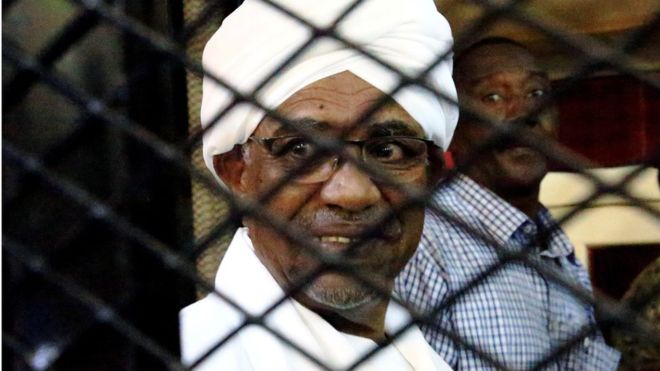Sudan has launched an investigation into crimes committed in the Darfur region under former President Omar al-Bashir, the state prosecutor says.
A trial could take place outside the country, Tagelsir al-Heber said.
Ten years ago the International Criminal Court issued an arrest warrant for Bashir on charges of genocide, war crimes and crimes against humanity.
The conflict between rebels and pro-government militias began in 2003. The UN says 300,000 people died.
After more than 30 years in power, Bashir was ousted earlier this year following mass protests.
The country is now run by a transitional government – composed of military rulers as well as members of the protest movement.
What did the prosecutor say?
Mr Heber said the Darfur investigation was focusing on “cases against former regime leaders”. He did not give names, but said no-one would be excluded from the investigation.
All crimes committed during the Darfur conflict would be looked at, he said – including numerous incidents of murder and rape.
If necessary, the trial could take place abroad, Mr Heber said, raising the prospect that Bashir could be transferred to the ICC in The Hague.
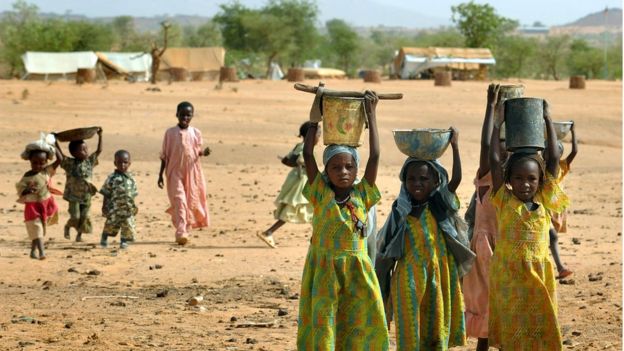
What happened in Darfur?
Fighting broke out in Darfur when black clansmen took up arms after accusing Bashir’s Arab-dominated government of marginalising the region.
The army fought back, joined by paramilitary forces including the infamous Janjaweed, who were accused of riding their camels and horses into villages, killing the men, raping the women and stealing whatever they could find.
Rights groups accuse Bashir’s government of using scorched-earth tactics. More than two million people were displaced.
Where are Bashir-era leaders now?
After Bashir was removed from power in April, ICC prosecutors requested that he stand trial over the Darfur killings.
The Sudanese army generals who seized power immediately after his fall initially refused to comply, but Sudan’s umbrella protest movement – which now has significant representation in the country’s sovereign council – recently said it would not object to his extradition.
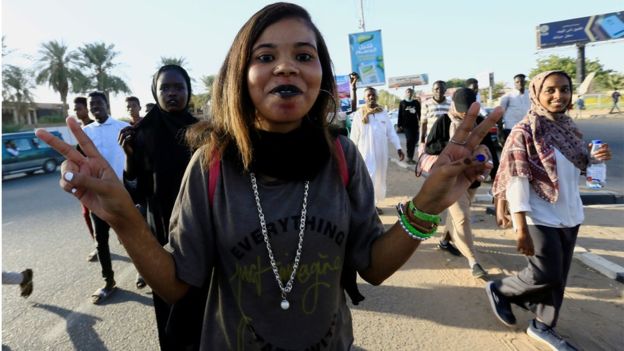
Bashir’s feared former intelligence chief Salah Gosh is also being investigated, Mr Heber said. The head of the National Intelligence and Security Service (NISS) quit in April two days after the Bashir was ousted and left the country.
“There four cases against Salah Gosh and we started a procedure to bring him [back to Sudan] by Interpol,” he said.
It is unclear whether Mohamed Hamdan “Hemeti” Dagolo is under investigation. A former Janjaweed militia leader in Darfur, he turned against Bashir as protests grew and was named vice-president of Sudan’s Transitional Military Council (TMC) after Bashir was forced out.
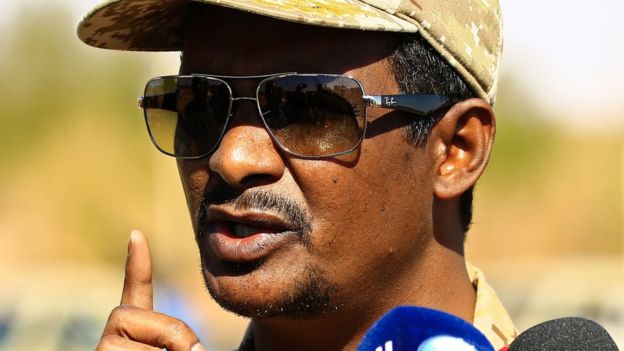
In August he became a member of the Sovereignty Council overseeing the transition to civilian rule.
Human Rights Watch accuses Hemeti of overseeing civilian abuses including “torture, extrajudicial killings and mass rapes” in Darfur as well as in separate conflicts in the southern Blue Nile and Southern Kordofan states.
Hemeti has said that the use of force was necessary in Darfur in order to protect its civilians.
Earlier this month, Bashir was given a two-year sentence in a reform centre after being found guilty of corruption.
Prosecutors have also charged him with the killing of protesters during the demonstrations that led to him being ousted and he is also being investigated over the 1989 coup that brought him to power.
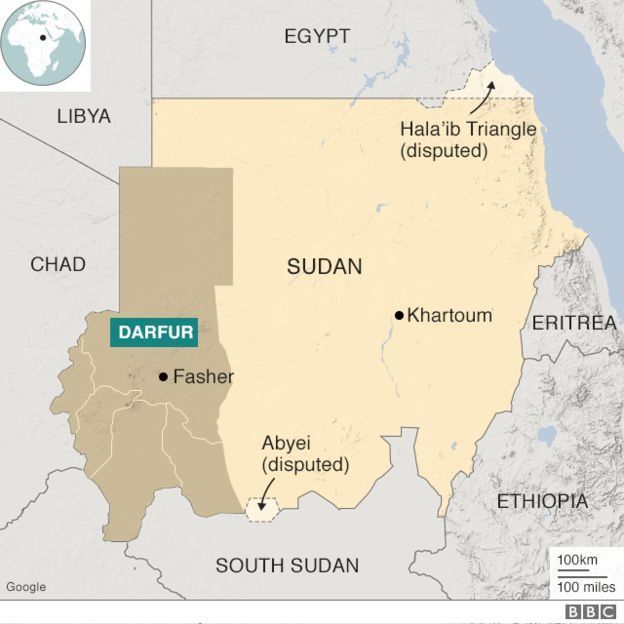
BBC

Putting a spotlight on business, inventions, leadership, influencers, women, technology, and lifestyle. We inspire, educate, celebrate success and reward resilience.

